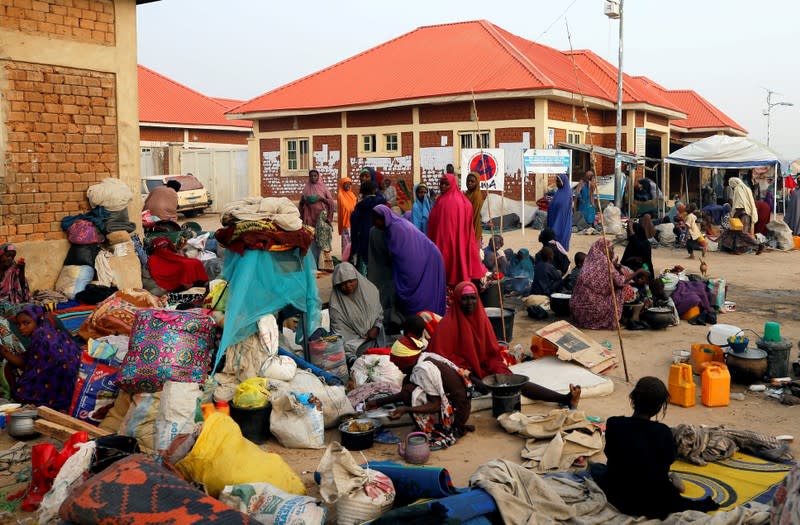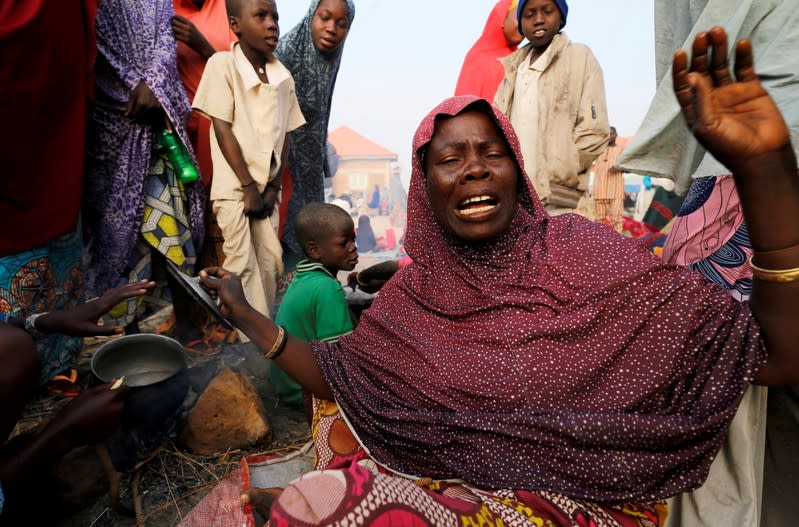Nigeria lifts suspension of two aid groups in northeast - minister
By Ahmed Kingmini
MAIDUGURI, Nigeria (Reuters) - Nigeria has temporarily lifted a suspension of the operations of two aid groups, Mercy Corps and Action Against Hunger, in the country's northeast.
The army forced both groups to close some of their offices in September, accusing Action Against Hunger of aiding terrorist groups and alleging that a large amount of money in a car found in northeastern Borno state belonged to Mercy Corps.
Mercy Corps country director Darius Radcliffe issued a statement on Thursday welcoming the decision, announced on Wednesday evening, by the minister of humanitarian affairs, and saying the group would resume work as quickly as possible:
"After nearly five weeks without support, the vulnerable populations that we serve cannot afford to wait any longer."
Action Against Hunger thanked the ministry, the humanitarian community and its donors for their assistance in getting the suspension lifted, and said it was time for the communities they serve to get the "lifesaving assistance that they have not been able to access for the last six weeks".
It has previously rejected the accusation of aiding and abetting a terrorist organisation - an allusion to the Islamist insurgency in the northeast.
Humanitarian Affairs Minister Sadiya Umar Farouq told a news conference in the capital Abuja that the concerns raised by the army would "continue to receive attention and scrutiny", and that the government would take new steps to vet and monitor all humanitarian groups working in the region.
The measures will include requiring non-governmental organisations to register and be vetted by the government before they can start work, and to submit monthly reports that include the amount and source of their fund-raising and the number of people they assist.
New rules will also dictate where NGOs purchase fuel and other "sensitive" items and how they can transfer cash.
A decade-long insurgency by Boko Haram has caused the deaths of some 30,000 people and driven 2 million to flee their homes. In 2016, Islamic State in West Africa (ISWA) split off from Boko Haram; it has launched its own attacks in the region.
The United Nations has described the situation in Nigeria's northeast as one of the world's worst humanitarian crises, estimating that 7.1 million people need assistance.
(Additional reporting by Alexis Akwagyiram in Maiduguri, Felix Onuah and Camillus Eboh in Abuja; Writing by Libby George; Editing by Mark Heinrich)


